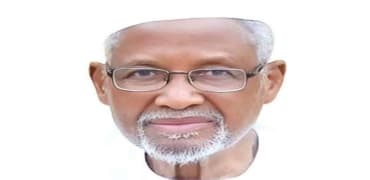Silence in the Wards: Nationwide Nurses Strike Paralyzes Hospitals Across Nigeria
Silence in the Wards: Nationwide Nurses Strike Paralyzes Hospitals Across Nigeria
Hospitals across Nigeria have ground to a halt as thousands of nurses and midwives launched a historic nationwide strike, the first in over four decades, bringing healthcare delivery to a near-complete standstill in both federal and state-run medical institutions.
From Lagos to Abuja, Ibadan to Minna, wards were emptied, patients discharged, and emergency units deserted as the National Association of Nigeria Nurses and Midwives (NANNM) began a seven-day warning strike to demand sweeping reforms in the nation’s health sector.
"No Nurses, No Care"
At the National Orthopaedic Hospital, Igbobi, once-bustling emergency rooms stood in eerie silence. Nearby, Isolo and Igando General Hospitals operated at skeletal levels, unable to admit or manage patients in the absence of nursing staff. The scene was echoed across the country.
“There are no nurses to attend to the patients. We had to discharge all of them,” lamented a doctor at the General Hospital in Kubwa, Abuja.
“Only emergency cases that don’t require admission will be considered,” he added grimly.
A Cry for Recognition and Reform
The strike was triggered by unmet demands including:
Creation of a Department of Nursing at the Federal Ministry of Health
30% shift duty allowance and 20% specialist allowance
N300,000 annual uniform allowance
Reconstitution of the Nursing and Midwifery Council of Nigeria (NMCN)
Fair representation of nurses on hospital governing boards
Improved staffing, retention incentives, and tax waivers for health workers
NANNM issued a 15-day ultimatum on July 10, which expired without action. The strike has now seen total compliance from chapters in over 20 states, and solidarity songs were heard across hospital premises as nurses marched out in protest.
Federal Appeal Falls Flat
Minister of Labour and Employment, Muhammad Dingyadi, appealed to the striking workers to reconsider, urging dialogue over disruption. A meeting with the union’s leadership is ongoing, but nurses insist they will not return until concrete commitments are made.
“Strikes are not the best solution,” the Minister said via spokesperson Patience Onuobia. “The government is working to resolve the concerns.”
However, NANNM leaders remain resolute, noting that nurses have long been marginalized in policy decisions and forced to work under unbearable conditions with minimal recognition.
Nationwide Fallout
In UCH Ibadan, patients were abruptly discharged, and nurses left chanting solidarity songs.
In Bayelsa, patients at FMC Yenagoa wandered aimlessly; some had waited since 8 a.m. without treatment.
JUTH in Jos, OAUTHC in Ile-Ife, UBTH in Benin, and FMC Umuahia saw mass walkouts.
Delta, Abuja, Kwara, Edo, Abia, Oyo, and Niger states all reported paralyzed services.
At Adeoyo Hospital in Ibadan, empty wards reflected the gravity of the situation.
“They told us to go home. My sister hasn’t been attended to all day,” said Mr. Adegoke Rahman.
“I came to treat a wound,” said outpatient Samuel Biyi, “but no one is here.”
A Nation on Pause
The strike exposes the fragile state of Nigeria’s healthcare system, heavily reliant on its nursing workforce. While medical consultations and dental services continue in some hospitals, the backbone of patient care has been effectively removed.
With no firm resolution yet in sight, Nigerians now face a critical health vacuum, as public hospitals brace for more difficult days ahead.
By Haruna Yakubu Haruna


















